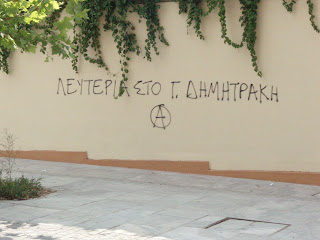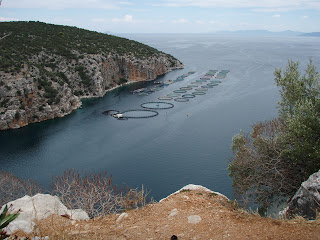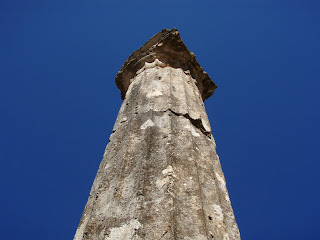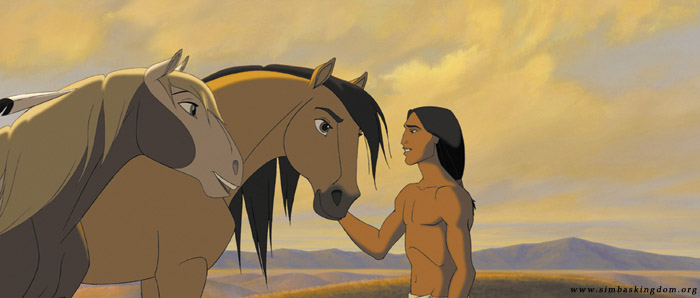Well, what have we today? Some auto union is striking... ooh, Lindsay Lohan isn't going out this weekend... (guess I'll stay in too)... and, well, hmm... but what have we here:
BUSH URGES CONGRESS TO REJECT ARMENIAN GENOCIDE RESOLUTION
Color me a-news-ed.
"But wait," ask the doe-eyed children gathered 'round the Interdome, "What does this mean?"
Let's delve into it, shall we? From the International Herald Tribune's 690 words on the subject, we learn that this resolution to name the murder of 1,000,000 Armenians in 1914-1918 a "genocide" could hurt our political relationship with the modern Turkish state, and therefore we shouldn't do it. It appears that the resolution is simply a push from some "interest groups" whose interest is that considering their cultural heritage, they would have qualified for the death camps back then.
This isn't the only recent time that American government has struggled to figure out what the definition of "genocide" is. In fact, the American government seems to have lots of trouble with definitions of words. But, I digress.
If we only read the IHT's article on the vocabulary discussion, we might just move onto the next headline, because, frankly, "genocide" is not a very happy word of the day, and there certainly is a big Interdome out there to read. But, for some retarded reason, I guess we are going to dig a bit deeper.
Turkey, as the IHT tells us, is one of the main transit points for American war supplies heading to Iraq. Therefore, improving relations with Turkey allows the Americans (let's try and pay attention so we don't get "Armenian" and "American" confused, eh?) wage war in the Middle East.
However, the actual way of things is that American-Turkish relations have been declining. After the Truman Doctrine established that Turkey was seeking support of America against the USSR (and other pro-Communist groups like the PKK--remember this, we'll come back to it!), an American military base was established in Turkey in 1954, that is used to the present day. But, ever since the end of the Cold War, and the end of the nice balance between East and West to divide the world, relations have been strained. Turkey has continued to be pro-US in order to support their foray into the EU, among other things, and they have backed this up by supporting American wars in the Middle East and recognizing Israel as a state despite how this has hurt them in their Middle East/Islamic relations.
So, for a country through which "the bulk of U.S. air cargo and about one-third of the fuel headed for Iraq passes," quoth the IHT, it would be important to keep them happy. So would a resolution about the Armenian genocide really be a thorn in the Turkish thumb?
Well, Turkey is not only a convenient conveyor belt to the hole in the desert into which we're currently pouring money. Like most so-called "resolutions", the matter itself is less resolved than other, more important, "strategic" things are alluded. Turkey is also the primary target, and major operating base of a group called the Kurdistan Workers' Party (PKK).
The PKK started in the 1970s as a Kurdish nationalist political group, and escalated to the level of a paramilitary organization. It's philosophy was Marxist-Leninist to begin with, but now has shifted to the Islamic hue post-Cold War.
These days, they are a "terrorist-organization"--a vocab word that was agreed upon by the US. The US has helped Turkey fight the PKK, allegedly with the CIA, and also through NATO paramilitary "stay-behind" forces that were placed in Turkey. The object of these forces was to remain hidden in the population so as to "stay behind" to conduct guerrilla operations in the event of a USSR invasion, but they were often utilized, at who-knows-who's behest to conduct paramilitary or domestic terrorism operations.
But, oh-so-surprisingly, in this crazy post-Cold War world things seem to have been getting confused. It seems that some of the weapons that the US has sent to Iraq (most likely through Turkey), you know, those weapons the US can't find, have ended up in the hands of the PKK.
And what's more, that very-lucrative-and-increasingly-popular contracting company Blackwater USA has been accused of directly smuggling weapons to the PKK! Horrors!
Now, why would the USA be smuggling weapons to a formerly Communist, avowedly terrorist, separatist group that they are simultaneously fighting in order to court their allies?
Why indeed!
Although I hardly claim to be in the neo-cons' brains, I would say that it is something along the lines of...
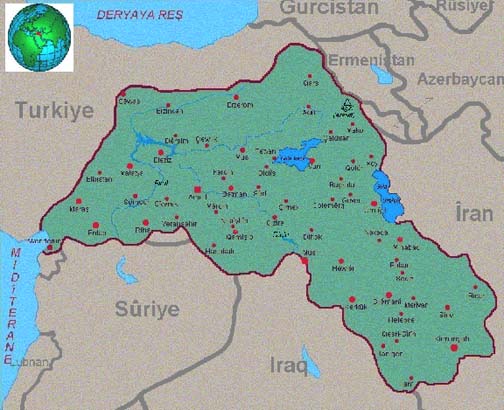 The PPK is a separatist nationalist group that while not having much of a positive effect for its own policy, is currently involved in destabilizing the ENTIRE Middle East region, and specifically the governments of Turkey, Syria, Iraq, and Iran.
The PPK is a separatist nationalist group that while not having much of a positive effect for its own policy, is currently involved in destabilizing the ENTIRE Middle East region, and specifically the governments of Turkey, Syria, Iraq, and Iran.Why would it help US policy to destabilize the region? Well, they've certainly done a good job of it so far, I don't see why they would not use any tool available to them to continue. Regardless of other positive and negative outcomes of the Iraq War for American interests, destabilization is an outcome that has only benefited the economic, political, and ideological status of the United States. And, if they didn't want to destabilize the region, there are certainly other ways they could be going about this project. Intimidation, fomenting armed conflict, and cross-border operations just speak so loudly, you know.
 Meanwhile, back at the ranch, Congress is occupying its time with a history lesson on whether the killing of 1,000,000 or so constitutes a certain word, something that the New York Times had reported some 90 years ago. That's a pretty good way of avoiding a current problem.
Meanwhile, back at the ranch, Congress is occupying its time with a history lesson on whether the killing of 1,000,000 or so constitutes a certain word, something that the New York Times had reported some 90 years ago. That's a pretty good way of avoiding a current problem.It really boggles my mind that it so easy to hide the killing of millions in plain sight. I guess that the typical person, and by this, I mean the overwhelming majority of the population, just doesn't care about these sorts of deaths, especially if they occur on the other side of the globe.
It certainly never stops. Turks kill Armenians, Germans kill Jews, Poles, and others, Sudanese kill other Sudanese, Americans kill Iraqis, and others. You know what the estimated numbers are dead were for the Iraqi Economic Sanctions, even before the war started? The same as the Armenian Genocide, 500,000-1,500,000. It never stops.
I guess we'll conclude this field trip with a quote, from a guy of whom you may have heard, who goes by the name of Adolf Hitler. It was said during a military meeting in 1939, before the invasion of Poland.
"I have issued the command -- and I’ll have anybody who utters but one word of criticism executed by a firing squad -- that our war aim does not consist in reaching certain lines, but in the physical destruction of the enemy. Accordingly, I have placed my death-head formation in readiness -- for the present only in the East -- with orders to them to send to death mercilessly and without compassion, men, women, and children of Polish derivation and language. Only thus shall we gain the living space [Lebensraum] which we need. Who, after all, speaks to-day of the annihilation of the Armenians?"
Where does American economic-lebensraum lie today? You can manifest that destiny for yourself, but one thing is certain, that were certainly have trouble to-day speaking of the annihilation of the Armenians.




















